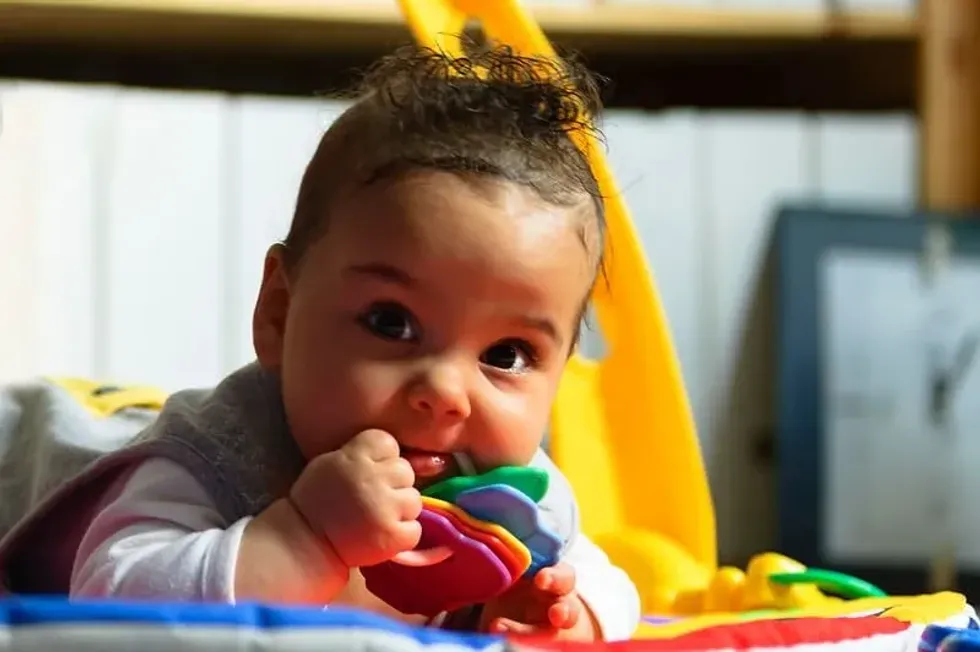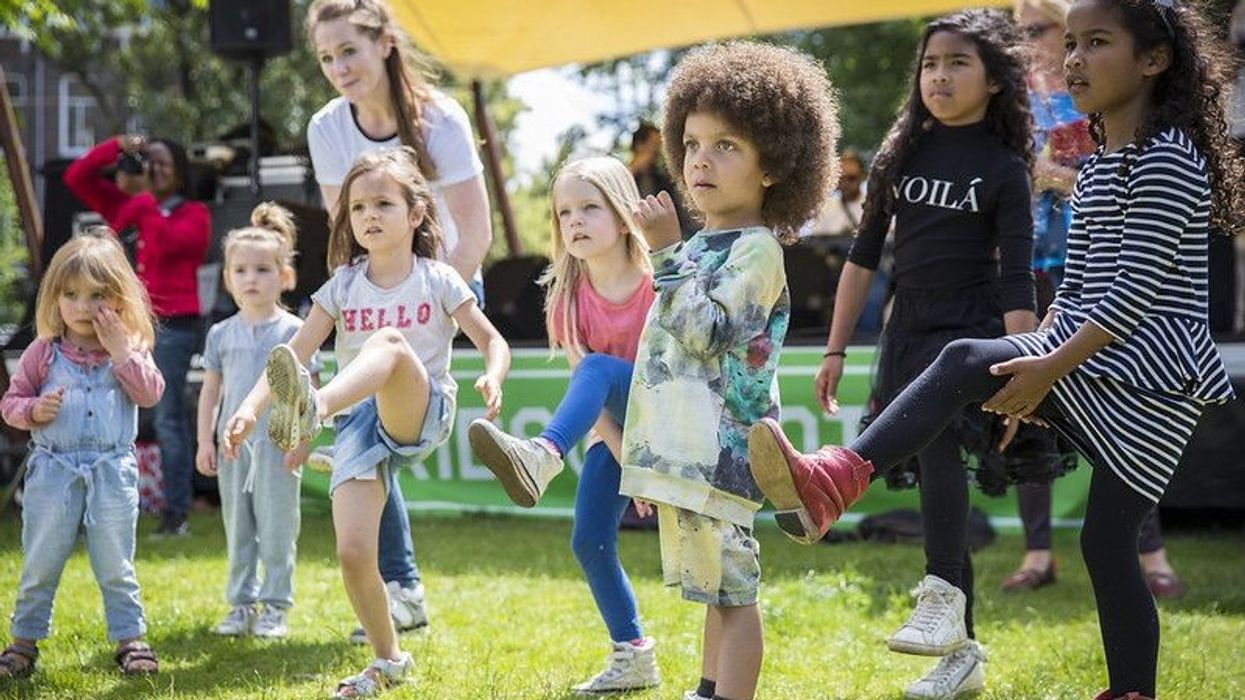The first few months of any baby's life is a vital time for development and cognitive growth.
Social and emotional development is something that is an essential part of this period of your 3 months old baby's life. It's a time when the motor, communication skills and learning capabilities are most nurtured and encouraged.
Important development milestones are reached when your baby is 3-month-old, including supporting the upper body and head with arms lying on their stomach, bringing hand to their mouth, opening and closing hand, and responding to dangling objects by swiping hands.
These fun learning baby activities, therefore, are essential to support the development of these different milestones and encourage future milestones such as those reached when your baby is 4 and 5 months old.
For example, dropping a rattle and responding by turning their head to look for it, sitting up for longer periods, and rolling over from their backs to their tummies.
Gross and fine motor skills, communicating and imitating and learning make up the 4 areas of development to encourage in your 3-month-old baby at this time. These fun and popular learning activities we have recommended below will see that your baby will get the best start they can as they start on their lifetime of learning.
Take a read to see which popular learning activities you want to engage your baby in!
Gross Motor Skills
These refer to the larger muscles in the arms and legs and involve things such as running. walking, lifting and kicking. Balance, reaction, speed and strength all play an important role in this too. Your 3-month-old baby will be beginning to strengthen their backs and necks.
Tummy time is also recommended during this stage for around 30 minutes a day. Eventually, through this, they will learn to crawl. Here are some different activities that promote these areas of development.
1. One activity to try is to place your baby on your lap whilst supporting their back and neck. As they look up at your face, hold them whilst making silly faces, sing, smile and play.
2. Encourage tummy time by laying your baby on the floor with their tummy down, and let them reach for different coloured toys and objects. Encourage them to reach as far as they can to strengthen their muscles and see if they can get the objects in their hands.
3. Have a go at placing different fun pictures around the room, and help your baby change positions so that each time they do, they get a new view with a new picture in each. Have them sit up, be over your shoulder and lay on their tummies.
4. For something even more sensory, why not have various textures on the walls for them to play with whilst they change positions and have to reach out to play.
Fine Motor Skills

Fine Motor abilities are that which involve the smaller muscles. For example, those found in hands, fingers and toes. Baby activities that encourage hand and wrist movement are especially effective here. Your 3-month baby will start to use their hands more in this stage, hold objects, grab and touch.
1. Turning the pages of a book is a great way to engage your baby in this. Pick out their favourite picture book and help them hold and turn over the page.
2. One idea involves your baby trying to sing. Games like pat a cake means they can sing-a-long whilst clapping at the same time.
3. Grabbing and reaching are vital movements to promote in your baby. Have them reach out and grab their favourite toys. Add new textures and consistencies for even more sensory engagement.
4. Mouth engagement is important at this stage. Have your baby reach and hold objects in their mouth, ensuring they are a safe size so they don't choke.
Communication and Imitating
Communicating and imitating is all about response, cause and effect. You will start to see your baby respond to your actions and emotions and these communicative bonds are essential parts of growth at this time.
1. One idea is to get your baby to follow your voice from around the house. Head to various rooms int the house and call out your baby's name and let them look in your direction. When they do, engage your facial expressions by smiling and giggling to promote these positive responses.
2. Imitation games are great activities for this stage. Imitate and copy whatever facial expression or sound your baby is making to nurture communication.
3. Tell stories aloud to your baby about things happening around them. Describe your environment. One example is "look at Rupert the dog, he's bringing his ball over to us." This not only promotes awareness of their surroundings but develops their understanding of language.
4. Using picture flashcards of objects, put these up to your baby and repeat what is on the card. This will help them form associations.
Learning

Learning is something that is occurring all the time for your baby. They are learning about responses and how to influence their environments.
1. Using your baby's name is important. Whenever you sing or talk to them, make sure to use their name so they can attach meaning to it. Introduce a mirror to this activity so they associate what they see with what they hear.
2. Sing songs in various pitches and speeds to them.
3. Make a sensory board full of many objects and textures for your baby to touch and explore.
4. Group objects and toys by colour in front of them whilst repeating the colour's name.
5. Allow them to track and follow objects with their eyes, such as by rolling a ball across their field of vision.










